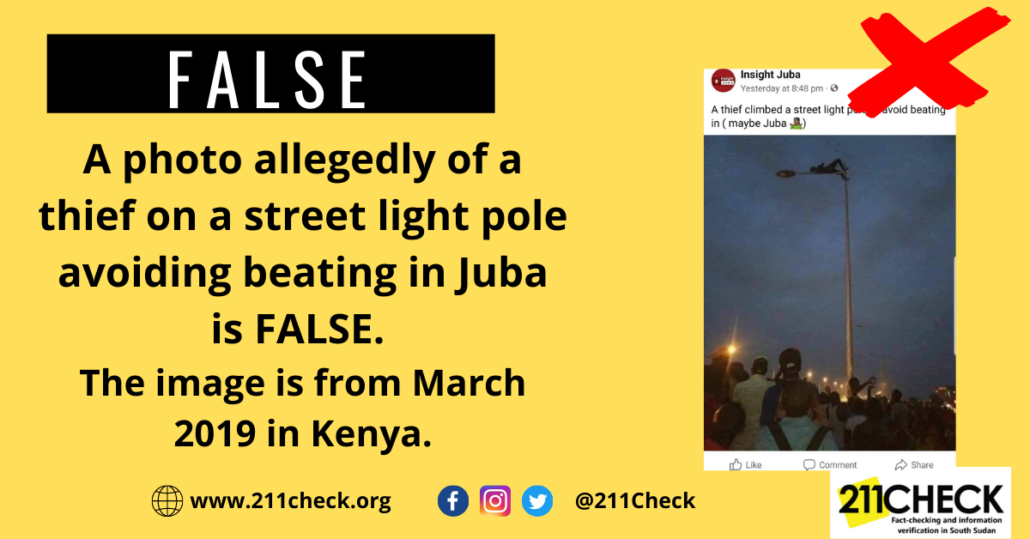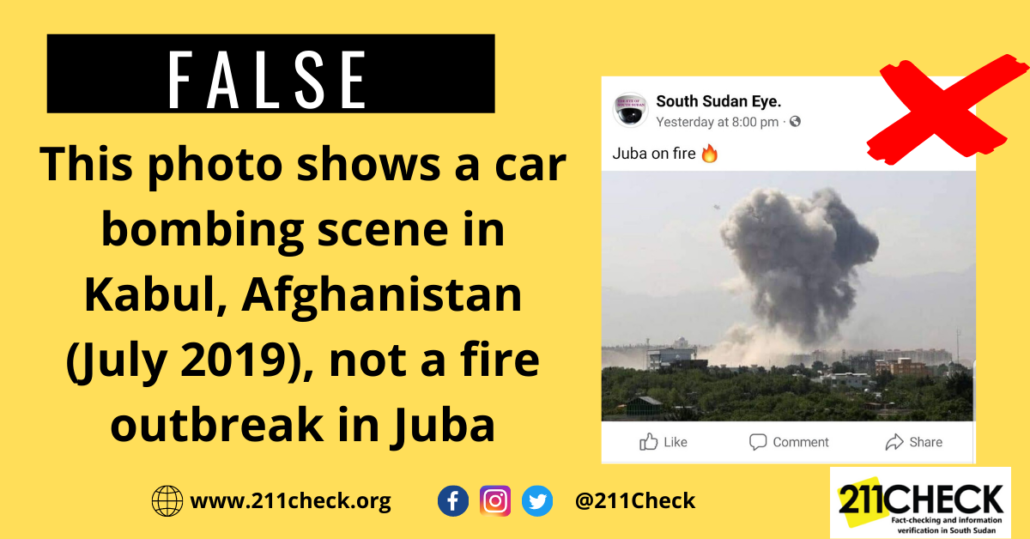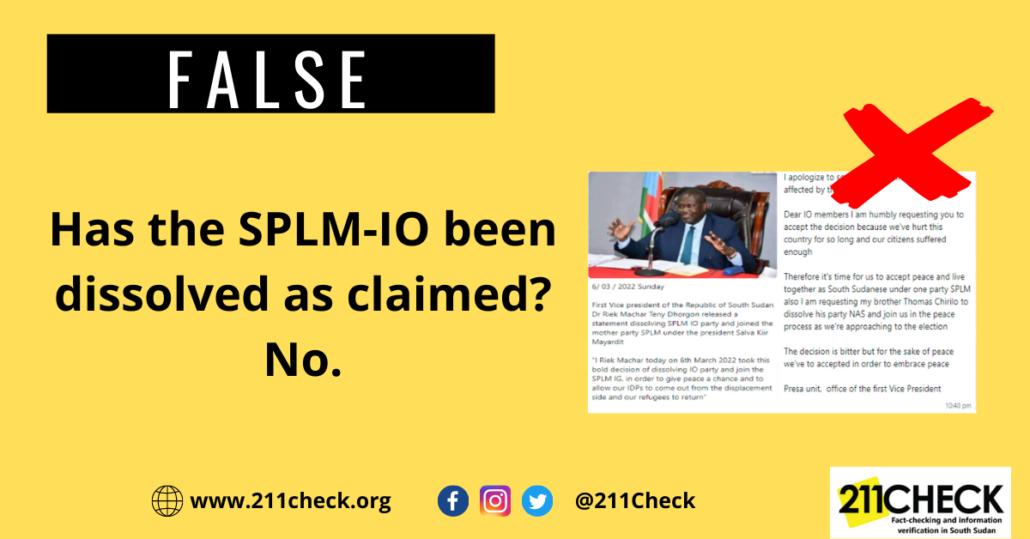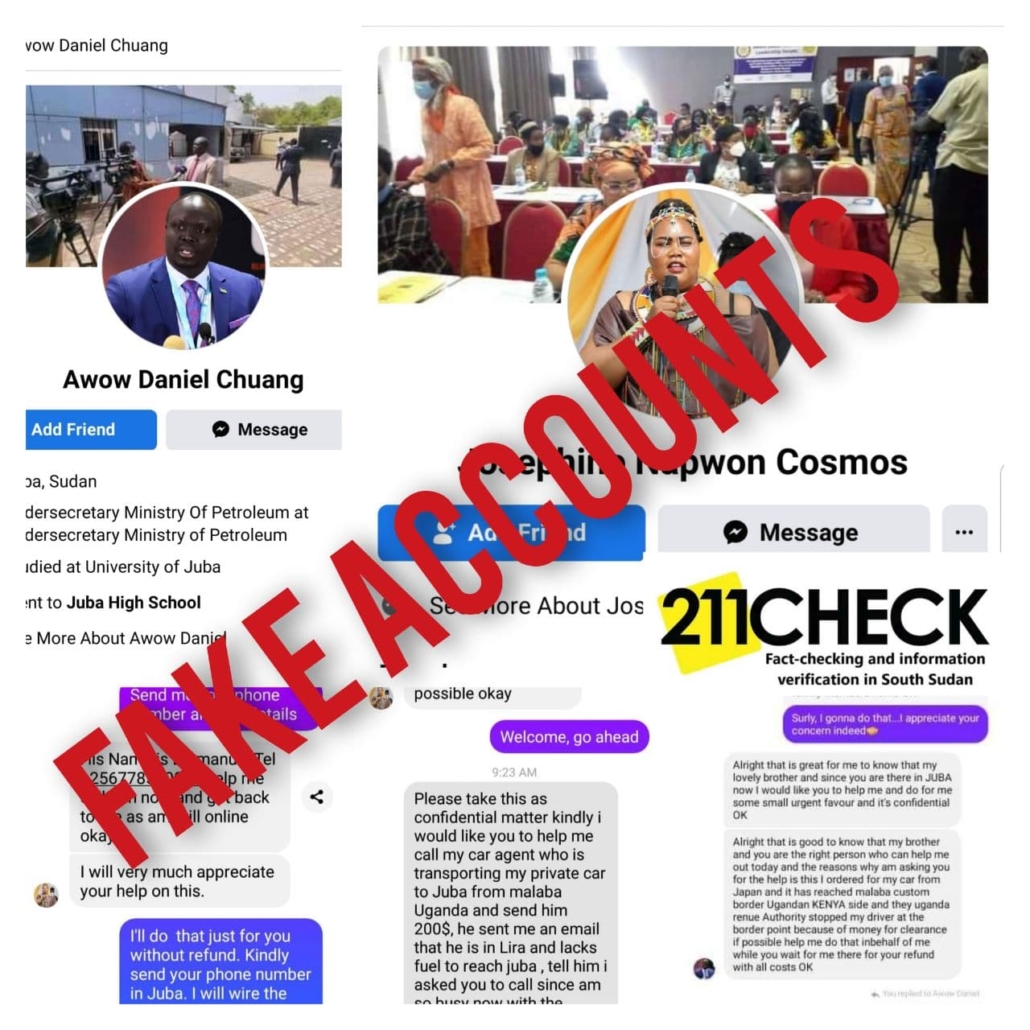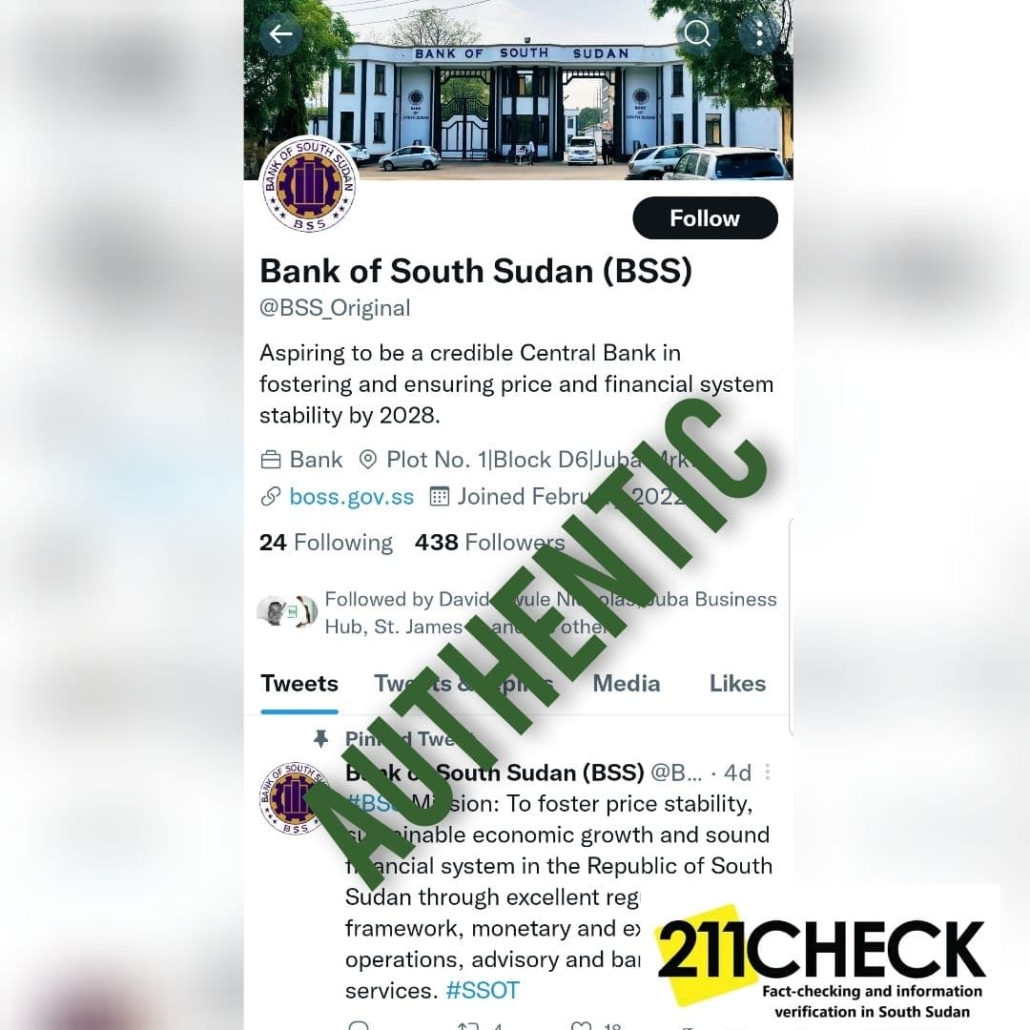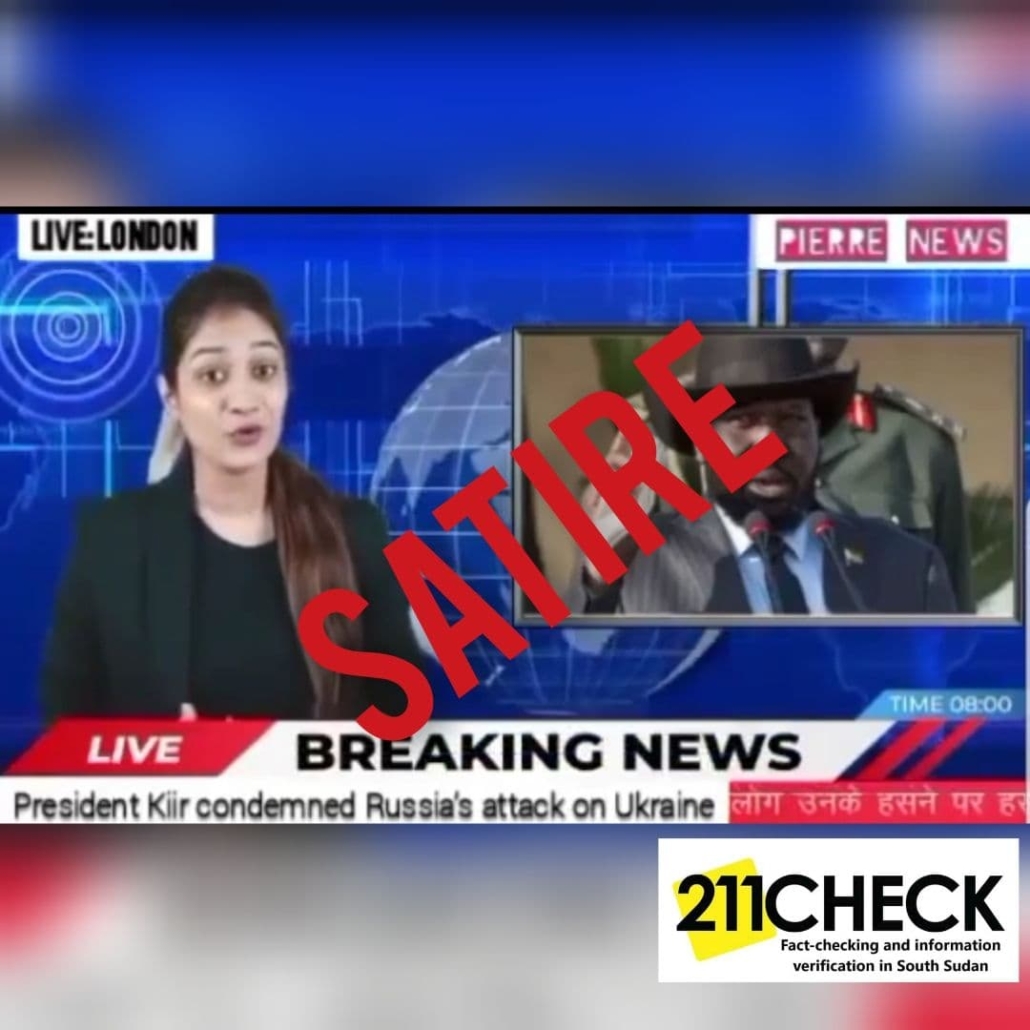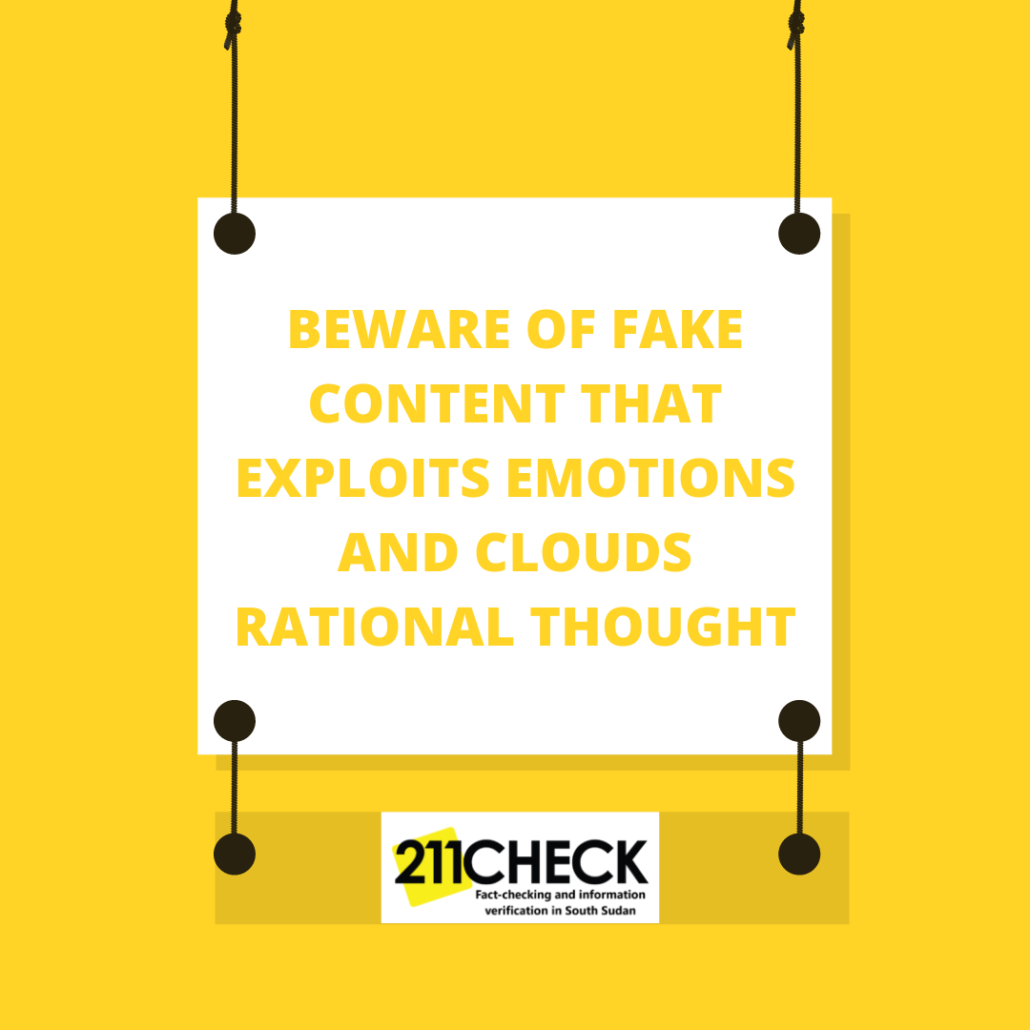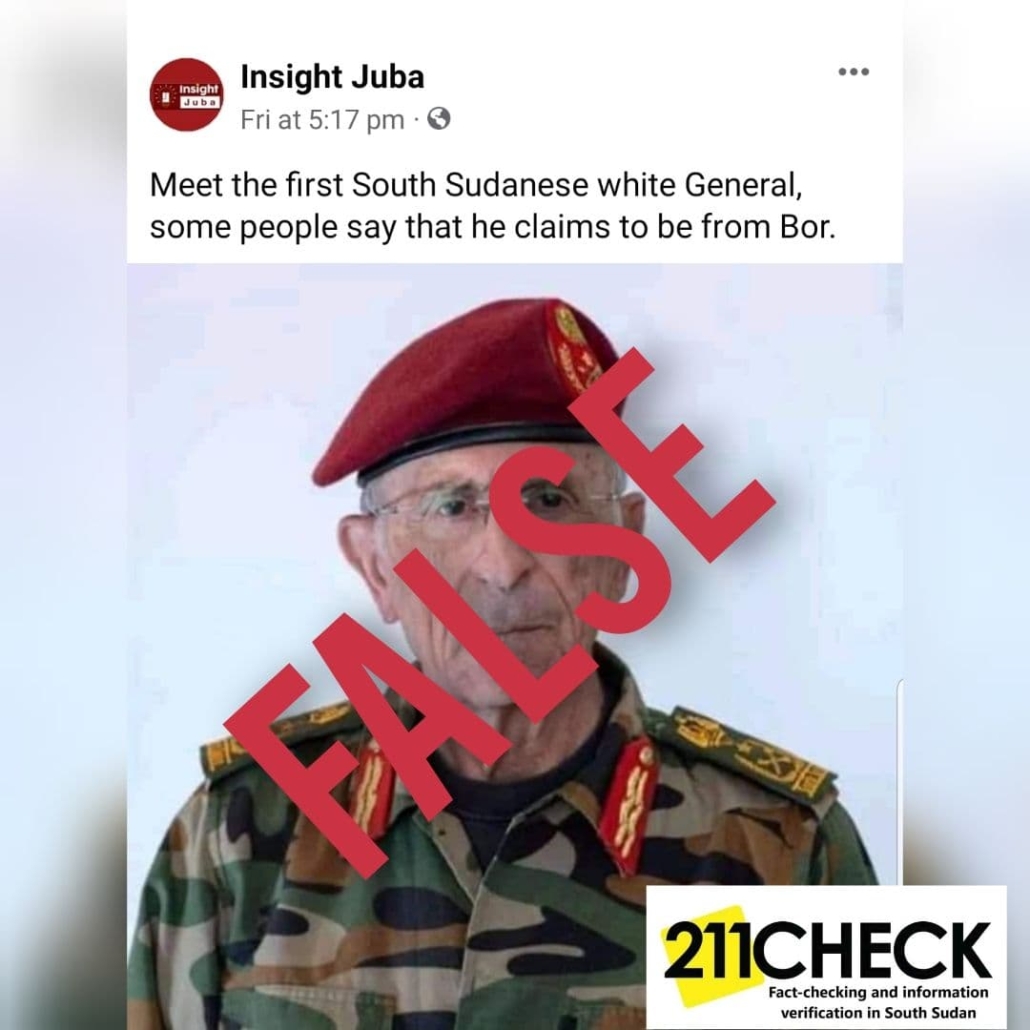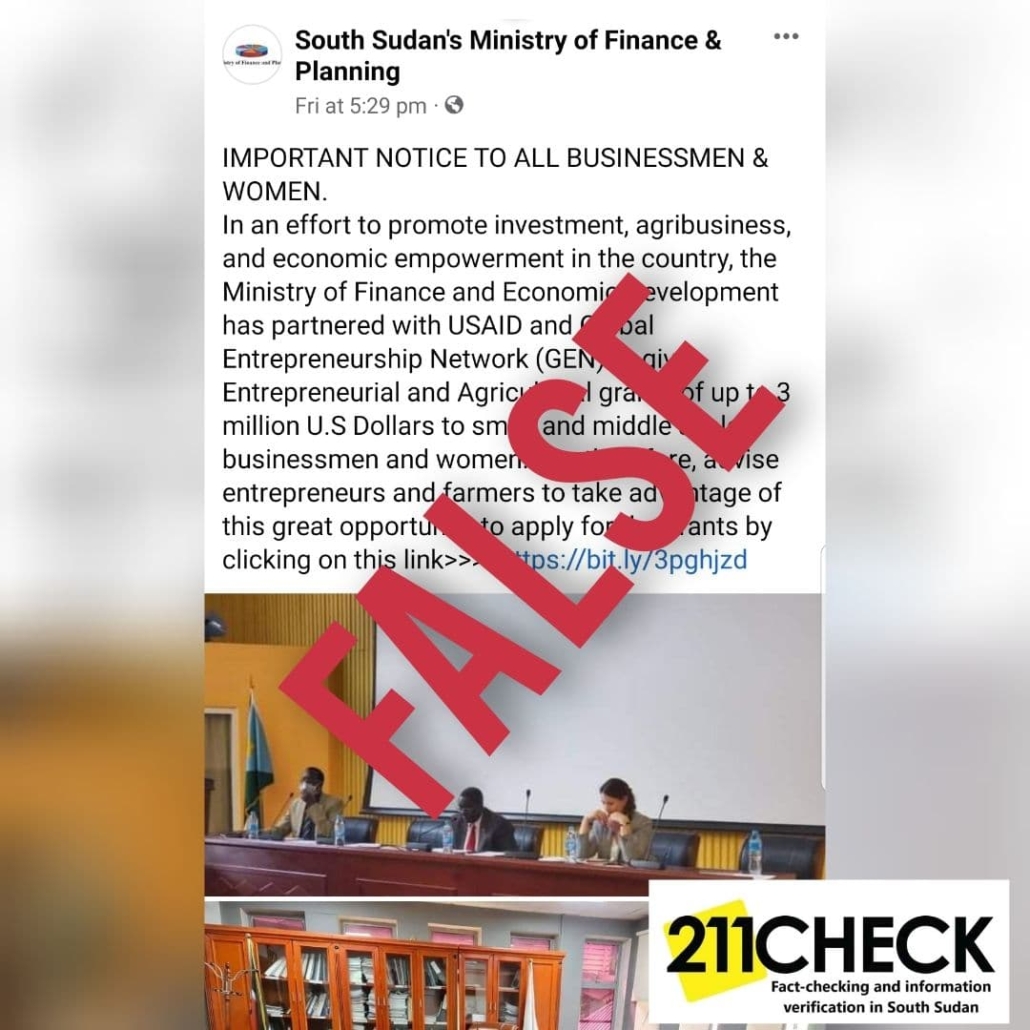Fact-check: Was this a thief on a street light in Juba? No.
By 211 Check Desk
Introduction
A photo allegedly of a thief on a street light pole avoiding beating in Juba is FALSE.
The photo shared on Facebook on March 28, 2022 by Insight Juba, a news and media website got over 180 interactions, 44 comments and 14 shares.
It shows a group of people looking up a street light where what looks to be a human is resting.
The post’s picture caption reads: “A thief climbed a street light pole to avoid beating in ( maybe Juba 🤷🏿♂️).”
Findings:
Google reverse image searches found the picture in a tweet from March 08, 2019, by a Kenyan politician.
He captioned the picture. “Roho ni Moja jameni. Pictured is a thief avoiding being lynched by an angry mob.”
The photo was also shared in similar tweets on 23rd March 2022, Mar 12, 2022, here and also here.
Conclusion:
The photo allegedly of a thief on a street light pole avoiding beating in Juba is FALSE. The image is from March 2019 in Kenya.
#FactsMatter, Don’t be a victim of fake news; instead, let’s fight misinformation on both mainstream and alternative media. To avoid spreading false information, don’t share content you’re not sure about or don’t know where it came from.
To learn more about our fact-checking process, go to https://211check.org/how-to-fact-check/ or send us a WhatsApp message at +211 917 298 255 to present a claim, and our team will immediately fact-check it and respond.
This fact-check has been produced as part of our Africa Fact-checking Alliance incubation program under Code for Africa.

